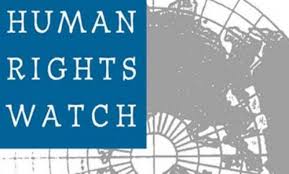
’Pressure Mounting on Saudis’ Coalition in Yemen’- The New York Times
UNITED NATIONS - Pressure is mounting on the Saudi-led military coalition that seeks to stanch a rebellion in Yemen, as aid officials prepare to add Yemen to the ranks of the world’s most severe humanitarian crises and human rights groups point to what may be war crimes.
United Nations officials are expected to declare Yemen a so-called Level 3 - or most severe - humanitarian crisis, as the de facto military blockade on commercial ships restricts the supply of food and fuel into the Arab world’s poorest country, diplomats said Tuesday.
That is sure to complicate what is already a delicate diplomatic balance for allies of Saudi Arabia, including the United States, which are reluctant to even call it a blockade. The preferred term, as one United Nations Security Council diplomat put it, is a "controlled maritime area."
Whatever it is called, its effects on civilians have been dire.
A fuel shortage has caused water pumps to stop functioning, heightening the risks of waterborne diseases. Hospitals are running out of medicines. An estimated 2.6 million children are at risk of contracting measles because vaccination programs have been interrupted, according to the United Nations children’s agency. And the death toll, according to figures released Tuesday by the World Health Organization, is more than 3,000...
The United Nations has sought to persuade Yemen’s Saudi-backed government in exile to let commercial shipments resume, with United Nations supervision to make sure that no weapons get in with them, United Nations officials said. But even that is stuck.
Yemen’s envoy to the United Nations, Khaled Alyemany, said his government ought to take part in the inspections and blamed the Houthis...for targeting the government-controlled oil port in Aden. "It’s the right of any legitimate state to control its border," he said.
The airstrikes that the Saudis’ coalition has carried out since March 26 have increasingly come under scrutiny for possible war crimes violations.
On Monday, the United Nations said one of its compounds was hit by an airstrike on Sunday, injuring a guard. It called for an investigation and reiterated that international law required that its facilities be spared.
Human Rights Watch said in a report released Tuesday that airstrikes on a Houthi rebel stronghold city called Saada killed at least 59 people, in what it said appeared to be a violation of international law. The attacks came early in the campaign and also destroyed markets, homes and a gas station. One particular strike on a residential neighborhood killed 27 members of the same family, including 17 children.
The group said the United States, which is providing support to the Saudi-led coalition, could be liable, and it pressed Saudi Arabia to investigate. Maj. Roger Cabiness, a Pentagon spokesman, said: "We are aware of the Human Rights Watch report concerning the current conflict in Yemen," adding that it continues to help the Saudi-led coalition with "intelligence support and intelligence sharing, targeting assistance, advisory support, and logistical support, to include aerial refueling with up to two tanker sorties a day."
Human Rights Watch said it could not determine which of the coalition countries carried out the airstrikes on Saada. Its report went on to say that even if they were aimed at legitimate Houthi military targets, it did not appear as though sufficient precautions were taken to spare civilian deaths, nor was it clear that the attacks were proportionate in nature. Both are critical legal questions to determine whether war crimes laws were broken...
The United Nations mediator, Ismail Cheikh Ould Ahmed, is trying to persuade the Saudi-led coalition, which supports Yemen’s government in exile, along with the Houthi rebels who routed that government to agree to a truce during the holy month of Ramadan. Time is running out: Ramadan ends July 17.
"Optimism would be a bit strong, but there is a lot of energy going into it," said one Security Council diplomat.
Yemen could soon be classified as a Level 3 humanitarian emergency, several United Nations diplomats said Tuesday, which would require a rapid increase in the humanitarian response. Iraq, Syria, and South Sudan are the other Level 3 emergencies.
The designation is applied when "a humanitarian situation suddenly and significantly changes and, following an analysis of five criteria - scale, complexity, urgency, capacity, and reputational risk," according to the Inter-Agency Standing Committee, the body that makes the determination...
Source: nytimes.com
